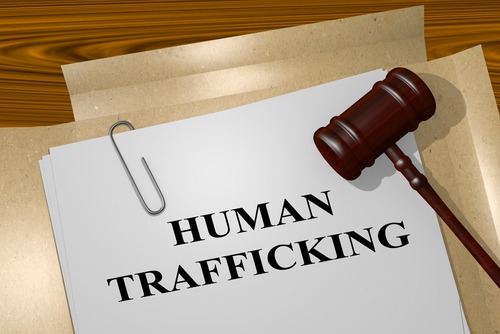
A total of three bills authored by United States Sen. Gary Peters (D-MI) crossed out of committee and to the floor of the Senate last week, offering potential means of enhancing Department of Homeland Security human and drug trafficking efforts.
The bills include the Non-Intrusive Inspection Expansion Act (S.4572), Enhancing DHS Drug Seizures Act (S.4645) and IMPACTT Human Trafficking Act (S. 4611).
“State-of-the-art screening technologies have already proven they can detect drug and human smuggling and stop these crimes while they are happening,” Peters said. “Deterring these illegal activities at ports of entry will save lives and ensure criminal organizations cannot continue exacting a devastating toll on Michiganders and people across the nation. These bipartisan bills will bolster our nation’s efforts to reduce the supply of poisonous drugs like fentanyl in our country and provide increased resources and support to victims of human trafficking, as well as to the Homeland Security Investigations employees who work to bring them justice.”
The Non-Intrusive Inspection Expansion Act, introduced alongside U.S. Sen. John Cornyn (R-TX), would require Customs and Border Protection (CBP) to utilize non-intrusive inspection systems for at least 40 percent of passenger vehicles and 90 percent of commercial vehicles entering the U.S. in fiscal year 2024, as a means of improving quality but also the speed of processing at land ports of entry. Oversight will be rolled into this, with CBP required to report to Congressional committees if it fails to meet the requirements. Congress provided CBP with $520 million to institute such systems in 2019 and additional funds since.
On the drug side, the Enhancing DHS Drug Seizures Act — co-sponsored by U.S. Sens. Josh Hawley (R-MO) and Margaret Wood Hassan (D-NH) — would require a new DHS plan to improve public-private partnerships with the shipping, chemical and pharmaceutical industries to help it detect and halt illicit drug and precursor chemical shipments early. It also would direct the department to study new ways for testing fentanyl and other illicit drugs, as well as its collection and analysis of data on drug seizures. Coupled with this, it would increase penalties for drug traffickers that monitor law enforcement or destroy border technology to make drug smuggling easier.
Lastly, the IMPACTT act — co-sponsored by U.S. Sen. Rob Portman (R-OH) — would make the likewise named program within Homeland Security Investigations permanent. That program offers outreach and training to investigators and other partners exposed to trauma while working with human trafficking victims. Thousands are trafficked into the U.S. every year, according to DHS, through a variety of means. Accordingly, the bill would also permanently enshrine and improve a program dedicated to providing them help: the Homeland Security Investigations Victim Assistance Program. It would increase the number of specialists on hand to assist victims and mandate that victims be given referrals for support services.




